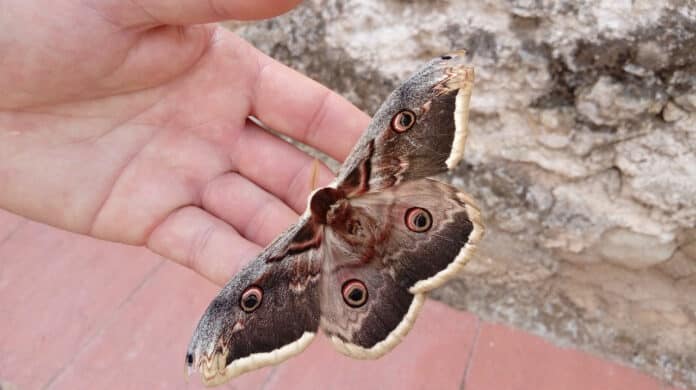Widespread concerns about the decline of wild pollinating insects have attracted considerable research interest, largely directed towards identifying key nectar sources and assessing the contribution of pollinators towards ecosystem services. However, previous work has almost exclusively focussed on bees and other diurnal invertebrate taxa.
A new study by the University of Sussex found that moths are more efficient pollinators at night than day-flying pollinators such as bees. Scientists studied ten sites in the South East of England throughout July 2021. They found 83% of insect visits to bramble flowers were made during the day. While the moths made fewer visits during the shorter summer nights, notching up only 15% of the visits, they were able to pollinate the flowers more quickly.
The researchers concluded that moths are more productive pollinators than day-flying insects like bees, who are typically regarded as “hard-working.” Moths played a significant role in pollen transport during the short hours of darkness, even though day-flying insects have more time to do so.
Professor Fiona Mathews, Professor of Environmental Biology at the University of Sussex and co-author of this latest research, says:
“Bees are undoubtedly important, but our work has shown that moths pollinate flowers faster than day-flying insects. Sadly, many moths are in serious decline in Britain, affecting not just pollination but also food supplies for many other species ranging from bats to birds. Our work shows that simple steps, such as allowing patches of bramble to flower, can provide important food sources for moths, and we will be rewarded with a crop of blackberries. Everyone’s a winner!”
Researchers examined the role that nocturnal and diurnal insects had in pollinating bramble. By experimentally prohibiting insects from visiting some flowers but not others, they were able to measure the number of insects visiting flowers using video traps and determine how quickly pollen was deposited at various times of the day.
The study also highlights the significance of bramble, a plant typically removed because it is thought to be unfavorable but is essential for nocturnal pollinators.
Dr. Max Anderson, who was a Ph.D. student at the University of Sussex working alongside Professor Mathews at the time of the research, and who is now South West Landscape Officer at Butterfly Conservation, says:
“Moths are essential pollinators, and they are vastly under-appreciated and under-studied. Most pollination research focuses on day-flying insects, with little understanding of what happens at night.”
“Now we know that moths are also important pollinators, we need to take action to support them by encouraging some bramble and other flowering scrub plants to grow in our parks, gardens, road verges, and hedgerows.”
Journal Reference:
- Max Anderson, Ellen L. Rotheray, Fiona Mathews. Marvelous moths! The pollen deposition rate of bramble (Rubus futicosus L. agg.) is greater at night than day. PLOS ONE. DOI: 10.1371/journal.pone.0281810
